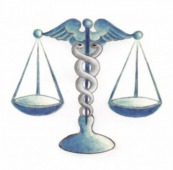Special Services
Comprehensive ADHD Evaluation
Key symptoms of ADHD include a short attention span, difficulty concentrating, impulsivity, distractibility, excitability, and hyperactivity. Hyperactivity is defined subjectively as an increase in motor activity to a level that interferes with the child’s functioning at school, at home, or socially. It is important to note, however, that symptoms of attention deficit disorder may exist with or without hyperactivity.
Symptoms of inattention, include but are not limited to:
- Lack of attention to detail
- Difficulty sustaining attention for prolonged periods
- Not listening
- Difficulty following through or completing tasks
- Disorganization
- Avoidance of activities that require sustained attention
- Tendency to lose personal belongings
- Forgetfulness
Symptoms of hyperactivity, include but are not limited to:
- Fidgetiness or squirminess
- Difficulty remaining in seat, or sitting quietly
- Developmentally excessive activity level
- Difficulty engaging in nonaction activities
- Talking excessively
Symptoms of impulsivity, include but are not limited to:
- Blurting out answers without raising hand or waiting for the end of the question
- Difficulty with “turn-talking” activities
- Frequent interruption or intrusion into others’ conversations or activities
Presence of some symptoms before 7 years of age.
Significant functional impairment as a result of the symptoms.
Formal ADHD Testing
Benefits of Testing
Some people wonder if they should get tested for ADHD once they become an adult. Here are five reasons why getting a formal diagnosis is helpful:
- Being diagnosed with a condition means you can start treating it and getting relief from the symptoms. Treatment may include ADHD medication and learning ADHD-friendly life skills.
- During the diagnosis process, other conditions might also be identified that might have been otherwise missed.
- Many people feel a huge sense of relief when they are diagnosed with ADHD.
- They feel less guilt and shame about being different from their peers now that they have a name for why they are the way they are.
- If you are a student, you are eligible for accommodations that will help you get the grades you are capable of. For example, you may be able to have a person in class with you to take notes for you and be allowed to take your exams in a quiet room.
ADHD SYMPTOMS
INATTENTION |
HYPERACTIVITY-IMPULSIVITY |
|
|
Aviation Testing, FAA-Approved
Why are both a psychiatric and a psychological evaluation required?
Mental disorders, as well as the medications used for treatment, may produce symptoms or behavior that would make an airman unsafe to perform pilot duties. Due to the differences in training and areas of expertise, separate evaluations and reports are required from both a qualified psychiatrist and a qualified clinical psychologist for determining an airman’s medical qualifications. This guideline outlines the requirements for these evaluations.
The psychological report needs to include a battery of tests and a copy of the test protocols. The battery should include:
1. Wechsler Adult Intelligence Scale-Revised (WAIS-R)
2. The Minnesota Multiphasic Personality Inventory (MMPI-2/MMPI)
3. As considered appropriate by the specialist, any three or more of the remaining tests or their equivalents:
a. A cognitive function-screening test such as Trails Making Test, Category Test, (Booklet or Machine) or a memory scale (Wechsler Memory Scale, California Verbal Learning Test, Rey Auditory Verbal Learning Test).
b. A projective test such as the Rorschach or Sentence Completion.
c. A personality inventory test such as the NEO-R, the Personality Assessment Inventory, or the Millon Clinical Multiaxial Inventory (MCMI).
d. A symptom-screening test such as the Beck or Hamilton for depression, or the MAST for Alcoholism.
Who may perform a psychiatric evaluation?
Psychiatric evaluations must be conducted by a qualified psychiatrist who is board-certified by the American Board of Psychiatry and Neurology or the American Board of Osteopathic Neurology and Psychiatry.
Who may perform a psychological evaluation?
Clinical psychological evaluations must be conducted by a clinical psychologist who possesses a doctoral degree (Ph.D., Psy.D., or Ed.D.), has been licensed by the state to practice independently, and has expertise in psychological assessment. We strongly advise using a psychologist with experience in aerospace psychology. Using a psychologist without this background may limit the usefulness of the report.
Bipolar Disorder
Bipolar disorder, also known as manic-depressive illness, is a brain disorder that causes unusual shifts in mood, energy, activity levels, and the ability to carry out day-to-day tasks.
There are four basic types of bipolar disorder; all of them involve clear changes in mood, energy, and activity levels. These moods range from periods of extremely “up,” elated, and energized behavior (known as manic episodes) to very sad, “down,” or hopeless periods (known as depressive episodes). Less severe manic periods are known as hypomanic episodes.
- Bipolar I Disorder— defined by manic episodes that last at least 7 days, or by manic symptoms that are so severe that the person needs immediate hospital care. Usually, depressive episodes occur as well, typically lasting at least 2 weeks. Episodes of depression with mixed features (having depression and manic symptoms at the same time) are also possible.
- Bipolar II Disorder— defined by a pattern of depressive episodes and hypomanic episodes, but not the full-blown manic episodes described above.
- Cyclothymic Disorder (also called cyclothymia)— defined by numerous periods of hypomanic symptoms as well numerous periods of depressive symptoms lasting for at least 2 years (1 year in children and adolescents). However, the symptoms do not meet the diagnostic requirements for a hypomanic episode and a depressive episode.
- Other Specified and Unspecified Bipolar and Related Disorders— defined by bipolar disorder symptoms that do not match the three categories listed above.
Case Management
Case management is a collaborative process of assessment, planning, facilitation, care coordination, evaluation, and advocacy for options and services to meet an individual’s and family’s comprehensive health needs through communication and available resources to promote quality, cost-effective outcomes.
The underlying premise of case management is based in the fact that when an individual reaches the optimum level of wellness and functional capability, everyone benefits: the individuals being served, their support systems, the health care delivery systems and the various reimbursement sources.
Case management serves as a means for achieving client wellness and autonomy through advocacy, communication, education, identification of service resources and service facilitation. The case manager helps identify appropriate providers and facilities throughout the continuum of services, while ensuring that available resources are being used in a timely and cost-effective manner in order to obtain optimum value for both the client and the reimbursement source. Case management services are best offered in a climate that allows direct communication between the case manager, the client, and appropriate service personnel, in order to optimize the outcome for all concerned.
For more information on our case management services, click here.

Forensic Psychiatry
Forensic psychiatrists are often called to be expert witnesses in both criminal and civil proceedings. Expert witnesses give their opinion about a specific issue. Often the psychiatrist will have prepared a detailed report before testifying. The primary duty of the expert witness is to provide an independent opinion to the court.
The types of questions a forensic psychiatrist would be called upon to answer would include:
- Competency to stand trial.
- Intent at the time of the alleged crime.
- The influence of alcohol, drugs, or medication on a person’s behavior.
- Toxic exposure from the environment (e.g., methamphetamine lab).
- Developing a treatment plan for mental or substance use disorders to help a defendant receive treatment in lieu of incarceration.
- Pre-sentencing assistance.
Please click the following link to gather additional information: michaelzonamd.com

Geriatric Services
Geriatric psychiatry emphasizes the biological and psychological aspects of normal aging, the psychiatric effect of acute and chronic physical illness, and the biological and psychosocial aspects of the pathology of primary psychiatric disturbances of older age. Geriatric psychiatrists focus on prevention, evaluation, diagnosis and treatment of mental and emotional disorders in the elderly and improvement of psychiatric care for healthy and ill elderly patients.
Dr. Zona is board certified in Geriatric Psychiatry, which is a sub-specialty of Psychiatry and Neurology.
House Calls
In the early 1930’s, house calls by doctors were 40% of doctor-patient meetings. By 1980, it was only 0.6%. Reasons include increased specialization and technology. In the 1990’s, team home care, including physician visits, was a small but growing field in health care, for frail older people with chronic illnesses.
Dr. Zona will make house calls, and has made hundreds of house calls to individuals who can not, or will not, leave their residence. House calls are particularly useful for the frail, elderly, chronic pain or non-ambulatory patients. Family members are encouraged to be present if possible.
Please call Dr. Zona directly at (310) 261-0035 for more information.
Interventions
Emergency psychiatry is the clinical application of psychiatry in emergency settings. Conditions requiring psychiatric interventions may include attempted suicide, substance abuse, depression, psychosis, violence or other rapid changes in behavior. Psychiatric emergency services are rendered by professionals in the fields of medicine, nursing, psychology and social work. The demand for emergency psychiatric services has rapidly increased throughout the world since the 1960’s, especially in urban areas. Care for patients in situations involving emergency psychiatry is complex.
Dr. Zona and his team have scores of successful interventions. They can be staged at the office or in the home, depending upon the specific issues involved.
Six Goals of Emergency Psychiatric Care
- Exclude medical causes of symptoms
- Rapidly stabilize the acute crisis
- Avoid coercion
- Treat in the least restrictive setting
- Form a therapeutic alliance
- Ensure an appropriate disposition & aftercare plan
From Zeller SL. Primary Psychiatry. 2010; 17:35.41.
Ketamine Treatment
Ketamine has been found to be extremely beneficial for acute suicidality, depression, and pain syndromes such as migraine and other neuromuscular pain syndromes. This treatment is administered by the physician, with a registered nurse, continuously present in the room to monitor the administration safely.
All Ketamine treatments are done intranasally.
For more detailed information, please click below to be taken to our more informative website, Boulder Ketamine Center.

Neuropsychiatric Lyme
Patients with late-stage Lyme may present with a variety of neurological and psychiatric problems, ranging from mild to severe. Lyme encephalopathy results in mood and cognitive disturbances as well as fatigue and a myriad of other symptoms such as headaches and sleep disorders. Cognitive difficulties include: simple and complex attention, slow visual and auditory processing, visual-spatial difficulties, sensory integration disorders, short-term and working memory difficulties, word-finding, word-generation and communication difficulties, decline in executive functions (planning and organization), confusion and decline in overall intellectual performance. Emotional/behavioral difficulties include: anxiety, panic attacks, depression, irritability, rage attacks, impulse dyscontrol, violent behavior, oppositional defiance disorder, sleep disorders, rapid mood swings that may mimic bipolarity (mania/depression), Obsessive Compulsive Disorder (OCD), Hyperactivity, Autism Spectrum-like disorders, antisocial disorders, and eating disorders.
The most common symptoms of chronic tick borne infection are musculoskeletal and neurological. Common symptoms include fatigue, which can be mild or severe; muscle pains that feel like the flu; muscle cramps and twitching, joint pains that are often migratory, typically involving larger joints with occasional swelling; severe sleep disorders; migrainous, global, or local headaches; neuropathies include the cranial nerves such as Bell’s Palsy, and peripheral nerves with numbness and parathesias as well as sharp, shooting, or stabbing pains; mood and cognitive disorders as the presenting complaint.
Five questions that suggest warning signs of Lyme encephalopathy are:
1. Are there markers of non-psychiatric disease such as erythema migrans rash, arthralgias or arthritis, myalgia headaches, sound or light sensitivity, paresthesias, tremors or twitching, cardiac palpitations, word-finding problems, short-term memory loss, crainial neuropathie radicular or shooting pains?
2. Is the psychiatric disorder atypical or unusual? For example, does a panic attack last longer than the expected 1/2 hour? Or is it a first ever panic attack at age 50?
3. Is there poor or paradoxial response to psychotrophic medications, or excessive side effects/sensitivity to these medications?
4. Is this new-onset disease without psychological precipitants such as new stressors or secondary gain?
5. Is there an absence of a personal history or family history of major psychiatric disturbances?
Migraine Treatment
A migraine can cause severe throbbing pain or a pulsing sensation, usually on just one side of the head. It’s often accompanied by nausea, vomiting, and extreme sensitivity to light and sound.
Migraine attacks can cause significant pain for hours to days and can be so severe that the pain is disabling.
Warning symptoms known as aura may occur before or with the headache. These can include flashes of light, blind spots, or tingling on one side of the face or in your arm or leg.
Medications can help prevent some migraines and make them less painful. Talk to your doctor about different migraine treatment options if you can’t find relief. The right medications, combined with self-help remedies and lifestyle changes, may help.
Personalized Medicine
Personalized medicine is the tailoring of medical treatment to the individual characteristics of each patient. The approach relies on scientific breakthroughs in our understanding of how a person’s unique molecular and genetic profile makes them susceptible to certain diseases. This same research is increasing our ability to predict which medical treatments will be safe and effective for each patient, and which ones will not be.
Personalized medicine may be considered an extension of traditional approaches to understanding and treating disease. Equipped with tools that are more precise, physicians can select a therapy or treatment protocol based on a patient’s molecular profile that may not only minimize harmful side effects and ensure a more successful outcome, but can also help contain costs compared with a “trial-and-error” approach to disease treatment.
Research has shown that this approach reduces the time it takes to find the correct medication and enhances clinical outcomes.
Specialized Tutoring Services
***Content Coming***



